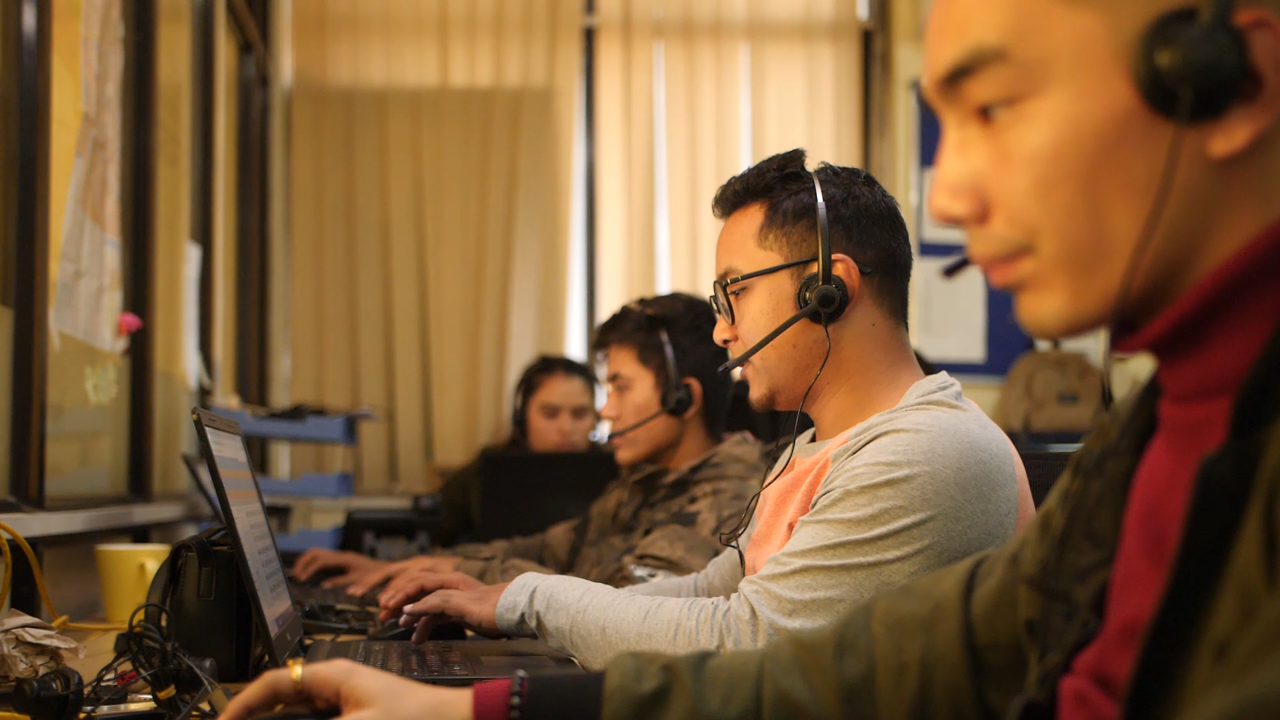Case Study: Save the Children Covid-19 Education Program in Nepal — “Ramaundai Sikdai” & Awareness Campaigns
Introduction
The COVID-19 pandemic created widespread disruptions in daily life, particularly in education and public health. To address these challenges,a team of experts developed an Interactive Learning program called “Ramaundai Sikdai” to educate and raise awareness among the childrens as well as youths in the affected area by delivering educational content directly to their mobile phones. Over a span of 20 days, beneficiaries received 10 engaging episodes, with two episodes released each week. The program also encouraged the beneficiaries to share and participate in the activities with their children.
Implementation:
The “Ramaundai Sikdai” program consisted of 10 episodes of learning activities that were sent to beneficiaries on their phones. Each episode was designed to provide educational content and awareness messages on various topics, such as health and hygiene, personal finance, and disaster preparedness. Beneficiaries were encouraged to share the activities with their children and provide feedback on their experience with each episode. By promoting learning and awareness within families, the program played a vital role in helping to save the children during the pandemic.
The team collected user feedback after each episode to understand the beneficiaries’ preferences and satisfaction levels. The feedback collected was used to improve future episodes and ensure that the content was relevant and engaging.
In addition to the “Ramaundai Sikdai” program, the team also conducted two Covid-19 awareness campaigns. The first campaign, #MaskKhai?, focused on promoting mask-wearing behaviour among individuals in Kathmandu, Lalitpur, and Bhaktapur. The campaign aimed to raise awareness of the importance of wearing masks in preventing the spread of COVID-19.
The second campaign, Covid-19 (Mental Health & Home Isolation), was a voice broadcast conducted in province 2 for 2 weeks. The campaign aimed to educate and raise awareness on the mental health impact of home isolation during the pandemic and provide tips and support for managing stress and anxiety.
Outcome:
The “Ramaundai Sikdai” program was well received by beneficiaries, with positive feedback received on the educational content and the ease of use. The program provided a valuable source of information and education to beneficiaries who may not have access to other forms of media.
The #MaskKhai? campaign was successful in promoting mask-wearing behaviour in the targeted areas, with an increase in the number of individuals wearing masks in public spaces. The Covid-19 (Mental Health & Home Isolation) campaign was also well received by the beneficiaries, with positive feedback received on the educational content and support provided.
The project feedback and evaluation survey conducted after the Covid-19 (Mental Health & Home Isolation) campaign showed that the voice broadcast was an effective means of raising awareness of the mental health impact of home isolation and provided valuable support to beneficiaries during the pandemic.
Conclusion:
The “Ramaundai Sikdai” Interactive Learning program and Covid-19 awareness campaigns were successful in educating and raising awareness among beneficiaries in the affected areas. The program provided a valuable source of information and education to those who may not have access to other forms of media. The campaigns were also successful in promoting mask-wearing behaviour and supporting the mental health of individuals during the pandemic. The team’s efforts demonstrate the potential of technology to bridge the information gap and provide support in times of crisis.
Related



